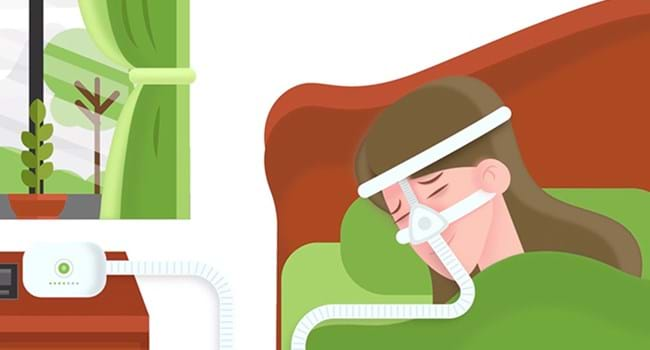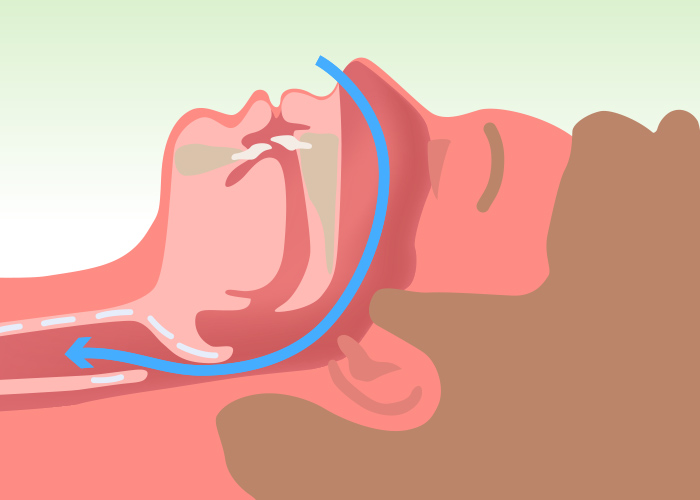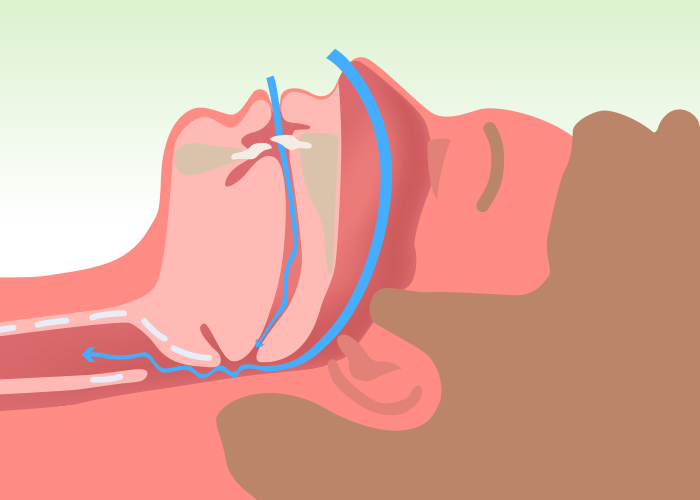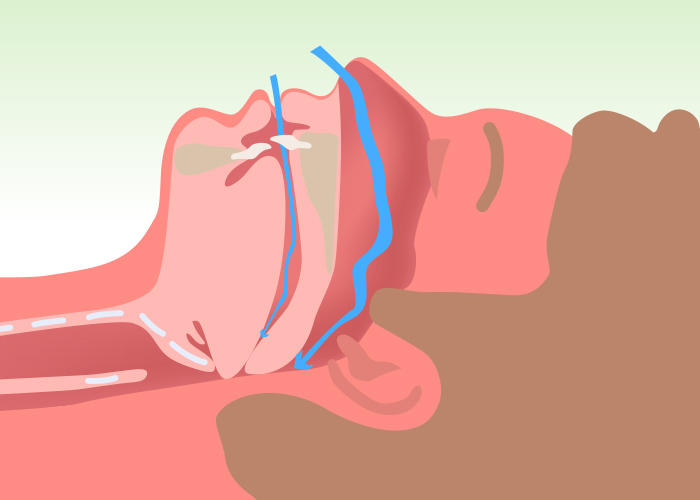Obstructive Sleep Apnoea (OSA) is more commonly known as sleep apnoea. OSA affects 1-2% of the adult population, and most often results in excessive sleepiness, impaired intellectual performance or focus and an increase risk of accidents. Overall OSA impacts on an individual's quality of life.

Individuals with sleep apnoea will experience upper airway collapses (apnoeas) or partial blockages (hypopnoeas) during sleep. During full collapses, the the airway becomes blocked and this causes respiratory pauses. As a result of this, the oxygen levels in the blood drop considerably and effort to breath increases. This triggers the brain to deliver a working response and open the airways, which is known as an arousal.
Sleep apnoea may cause hundreds of arousals a night, resulting in disrupted sleep and impaired organ and hormone function. You can contact our respiratory team on 0800 121 4012.

Upper airway during normal breathing

Narrow airway during hypopnoea

Blocked airway during apnoea




Discover if you are at high, medium or low risk of Sleep Apnoea (OSA).
Take the questionnaire© Copyright 2022 Dolby Vivisol. All Rights Reserved. To find out more about The Vivisol Group and The SOL Group click on the links here: The VIVISOL Group The SOL Group The VIVISOL Group us | The SOL Group